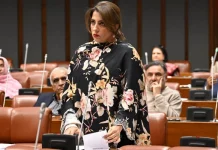
By Ajmal Khan
ISLAMABAD: Surrendering to public outcry, Prime Minister Imran Khan finally decided on Wednesday to withdraw a controversial ordinance promulgated last week that offered Rs210 billion financial amnesty to big businesses.
The government will also ask the Supreme Court of Pakistan to club all stay orders issued by various high courts and itself take an expedited decision in ongoing cases on the Gas Infrastructure Development Cess (GIDC). A day earlier, the federal cabinet had asked the ministry of law to amend the GIDC Ordinance of Aug 27, 2019 to include the condition of forensic audit before signing settlement agreement with these sectors namely fertiliser, general industry, IPPs, generation companies, K-Electric and CNG sector.
However, the criticism continued to grow in the mainstream and social media, as well as from within the ruling party, compelling the government to reverse the whole initiative ab initio. “In view of the recent controversy, the prime minister, in the interest of transparency and good governance, has decided to withdraw the said ordinance”, said an announcement by the prime minister’s office.
It said the prime minister also directed “the attorney general to move an application for urgent hearing in the Supreme Court, so that the matter is decided at the earliest, strictly in accordance with the law and the Constitution”.
This was later reiterated during a joint news conference of the government’s entire economic team including Prime Minister’s Advisers Dr Abdul Hafeez Shaikh and Abdul Razak Dawood, Federal Ministers Khusro Bakhtiar, Omar Ayub Khan and Hammad Azhar and special assistant to the prime minister on petroleum Nadeem Babar.
Dr Shaikh said the prime minister had ordered that the matter be referred to the Supreme Court which should now guide on how to proceed with the issue. He said the government’s basic objective was to take any decision which was in accordance with law, in the interest of people instead of any vested interest and transparency should be such that any fair minded person could appreciate it.
Asked if the amnesty decision was really unfair or was it a failure of the cabinet members to defend a government decision that forced the prime minister to go back on it, Mr Omar Ayub denied such notions, saying the prime minister believed that ‘justice must not only be done but it must also be seen to be done’ and hence he decided to keep everything above board.
He said the attorney general would now request the Chief Justice of Pakistan to call GIDC related cases in high courts, club all of them together and hold an early hearing on the subject and decide the matter on merit once and for all.
The prime minister said that total amount stuck in the GIDC litigation from January 2012 till December 2018 was about Rs417bn. In the first round of litigation, the Supreme Court annulled the collection between 2012 and 2014 on technical grounds because it was imposed through finance bill and the federal government’s review petition was also dismissed by the Supreme Court.
Thereafter fresh legislation was brought about through an act of parliament, but it was challenged before high courts and a set of appeals was also pending before the Supreme Court. The government believed the act introduced in 2015 would hold the ground because it was duly passed by both houses of the parliament.
The prime minister said the nation should also know that going to the court carries a risk because the decision could go either way. “This means that the government could get the whole amount or could lose it all and possibly forgo any prospects of future revenue collections under this head”, the prime minister said.
“Also on top of this, the government could be saddled with the burden of administering refunds of approximately Rs295bn of the principal amount”, the prime minister warned while ordering withdrawal of the controversial GIDC amendment ordinance.



